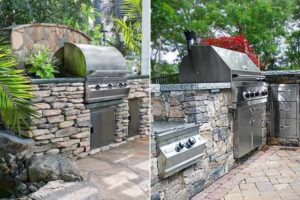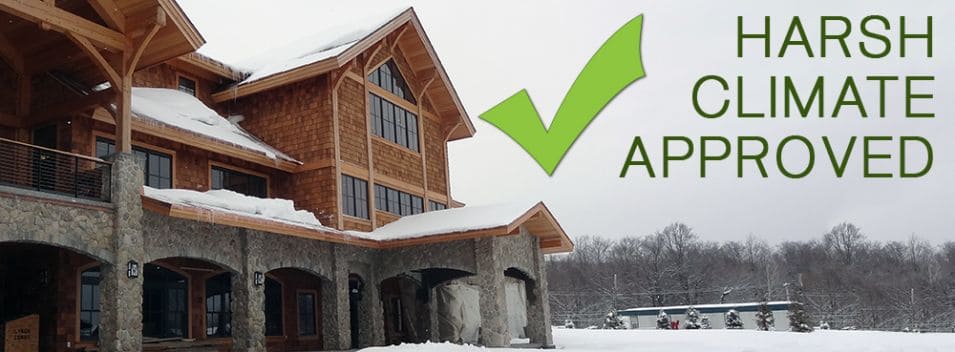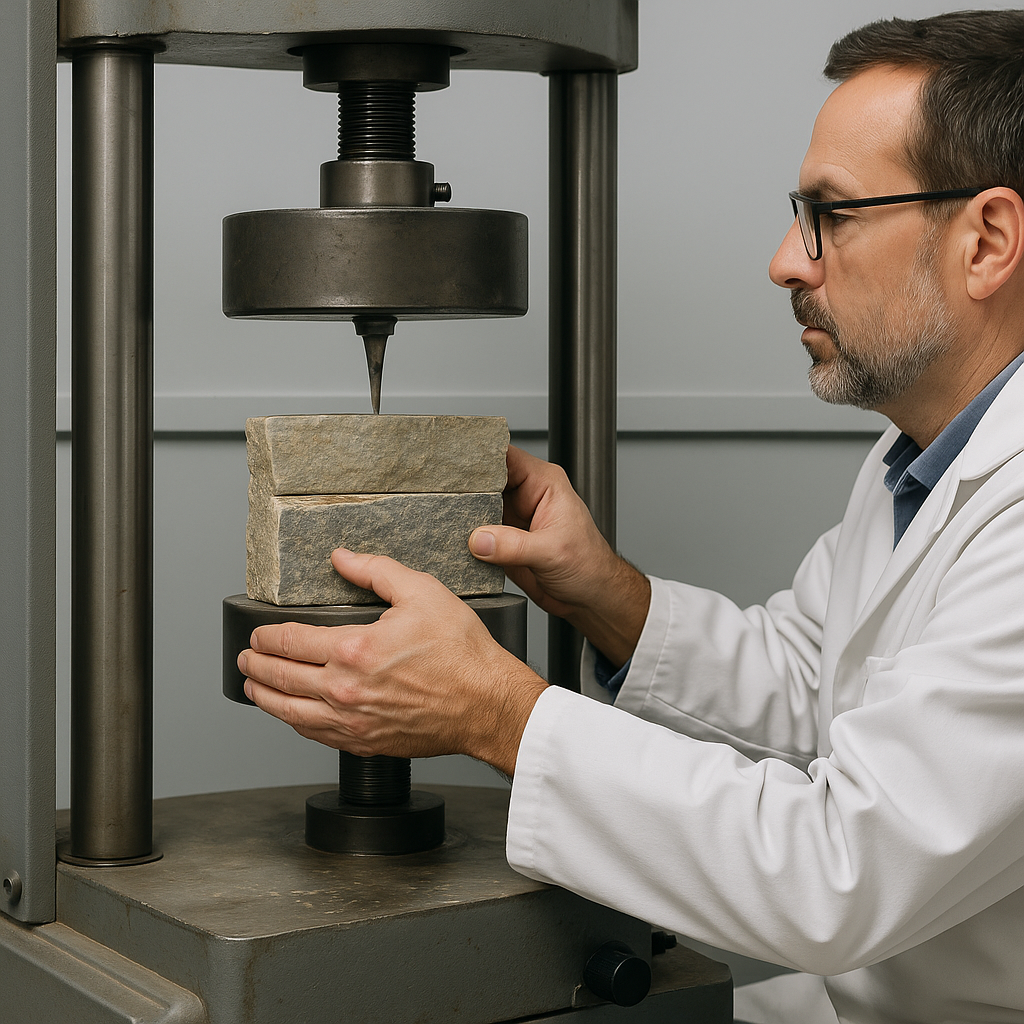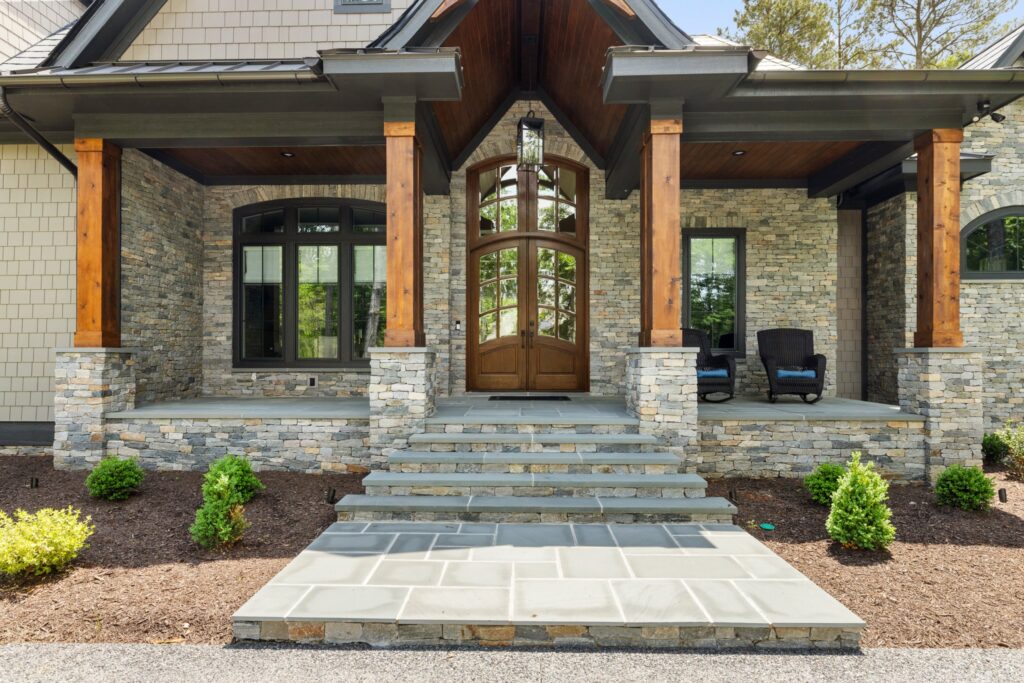ASTM-Certified Thin Stone Veneer: What It Means and Why It Matters
Natural stone veneer is only as reliable as the standards behind it. At Stoneyard®, every product is independently tested and certified to meet ASTM C1670 and related ASTM requirements. These rigorous benchmarks prove that our thin stone veneer can withstand decades of freeze-thaw cycles, weather exposure, structural stress, and real-world installation demands—without failure.
Our compliance isn’t marketing—it’s documented proof. Each certificate is issued by accredited laboratories and demonstrates Stoneyard’s commitment to durability, safety, and performance. On this page, you’ll see why ASTM standards matter, how Stoneyard exceeds every requirement, and where you can access the actual certification reports.
TL;DR
Stoneyard® thin stone veneer is certified to ASTM C1670 and related standards, proving durability, freeze–thaw performance, bond strength, and fire safety. Our compliance is documented through independent lab reports you can view below.
What Are ASTM Standards for Stone Veneer?
ASTM International (formerly the American Society for Testing and Materials) sets the benchmark for building materials around the world. For thin stone veneer, several standards apply, with ASTM C1670 being the cornerstone.
Key ASTM standards that apply to natural thin stone veneer include:
- ASTM C1670 – Standard specification for adhered manufactured stone masonry veneer.
- ASTM C97 – Absorption and bulk specific gravity of dimension stone.
- ASTM C99 – Modulus of rupture of dimension stone.
- ASTM C170 – Compressive strength of dimension stone.
Together, these standards ensure that stone veneer is:
- Durable in freeze–thaw cycles
- Resistant to water penetration
- Structurally sound under loads
- Safe for installation in residential and commercial projects
External link recommendation: ASTM International Standards Overview
Why ASTM Certification Matters
ASTM certification isn’t just paperwork—it’s performance validation. For homeowners, contractors, and architects, ASTM compliance provides:
- Proven Durability – Independent labs confirm the stone can survive decades of harsh weather.
- Safety Assurance – Fire, strength, and water-resistance standards reduce risk of structural failure.
- Code Compliance – Most U.S. building codes require ASTM-backed materials for exterior veneers.
- Differentiation from Faux – Manufactured or faux stone panels often cannot pass ASTM testing.

External link recommendation: ICPI – Interlocking Concrete Pavement Institute for code compliance reference.
Stoneyard’s Testing Process
Independent Third-Party Labs
We only use certified labs that follow ASTM protocols exactly, ensuring that the results are recognized by architects, engineers, and code officials.
Regular Testing and Ongoing Compliance
Our products are tested not just once but repeatedly over time. Each batch of stone is subject to random testing to ensure consistency.
Transparency in Reporting
Unlike competitors that may summarize results, Stoneyard publishes full test reports and certificates for anyone to review.
Deep Dive: Key ASTM Tests Explained
ASTM C1670 – The Foundation Standard
This standard is the most important for thin stone veneer. It evaluates:
- Shear bond strength: ensures stone adheres securely to substrate.
- Freeze–thaw resistance: validates stone won’t crack or spall in cold climates.
- Durability under moisture: confirms resistance to water penetration.

ASTM C97 – Water Absorption and Density
This test measures how much water stone absorbs and how dense it is. Low absorption is critical because water infiltration leads to freeze–thaw damage.
- Industry Requirement: Absorption under 1.5% is considered excellent.
- Stoneyard Results: Our stones consistently fall well below maximum thresholds, with absorption rates low enough for long-term performance in wet and cold environments.
External link recommendation: ASTM C97 Standard Abstract
ASTM C99 – Modulus of Rupture (Flexural Strength)
This test measures the stone’s ability to resist breaking under bending forces. For adhered veneer, it proves whether the stone can handle stress during installation and throughout its life span.
- Industry Requirement: Stones must reach minimum rupture strength.
- Stoneyard Results: All Stoneyard veneers surpass required rupture strength, meaning they resist cracking under load or stress.

ASTM C170 – Compressive Strength
This measures how much load the stone can bear before it crushes. While thin stone veneer is not load-bearing, compressive strength ensures the stone can resist applied forces such as mortar pressure or installation stresses.
- Industry Requirement: Natural stone must achieve a compressive strength well above common concrete masonry.
- Stoneyard Results: Our veneers significantly outperform manufactured alternatives, demonstrating superior resilience.
Comparison: ASTM-Certified vs. Non-Certified Stone Veneer
| Feature | ASTM-Certified Stone (Stoneyard) | Non-Certified / Faux Panels |
|---|---|---|
| Durability | Proven freeze–thaw resistance | Unknown or untested |
| Strength | Meets compressive & rupture tests | May crack under load |
| Fire Resistance | Non-combustible | Some panels are combustible |
| Water Absorption | Controlled & documented | Often absorbs water and fails |
| Code Compliance | Meets ASTM standards | May not qualify for permits |
Verdict: ASTM-certified natural stone veneer like Stoneyard is the safe, long-lasting choice.
Real-World Applications and Case Studies
- Residential Siding in New England
A Boston-area home built with Stoneyard Boston Blend® veneer has withstood over 20 freeze–thaw cycles without a single failure. The ASTM C1670 compliance gave the builder confidence to specify natural stone over cultured alternatives. - Commercial Office Complex in Massachusetts
A LEED-certified building used Stoneyard’s ASTM-tested veneers to meet sustainability and durability requirements. ASTM C97 water absorption results were critical for approval. - Outdoor Fireplaces and Kitchens
ASTM C170 compressive strength guarantees that veneer pieces remain intact even when exposed to heat and structural stresses.

External link recommendation: US Green Building Council – LEED
Benefits for Different Audiences
For Architects
- Simplifies specifications with ASTM-certified documentation
- Meets AIA/ICPI continuing education standards
- Reduces liability risk in design
For Contractors
- Streamlined approvals during inspections
- Confidence in installation durability
- Fewer callbacks due to failures
For Homeowners
- Investment backed by documented quality
- Peace of mind against cracking or water damage
- Long-term value and curb appeal

FAQ
It’s the standard specification for adhered thin stone veneer, covering durability, shear strength, and freeze–thaw performance.
No. Many suppliers sell stone without independent certification. Stoneyard tests every product line.
Yes. Certificates are published online for full transparency.
Stoneyard maintains ongoing compliance, with products retested regularly to ensure consistent performance.
Natural ASTM-certified stone is proven non-combustible, more durable, and longer lasting than synthetic alternatives.
|
Call to Action
Ready to specify stone that meets ASTM standards every time?
